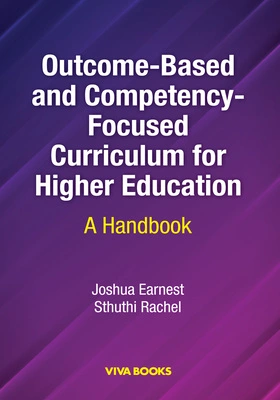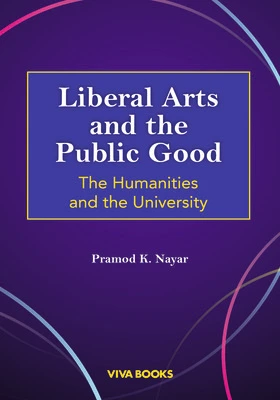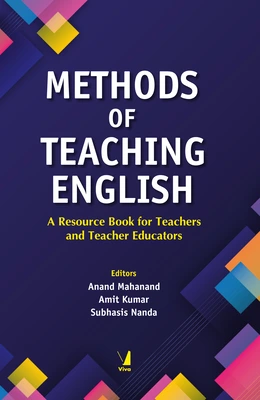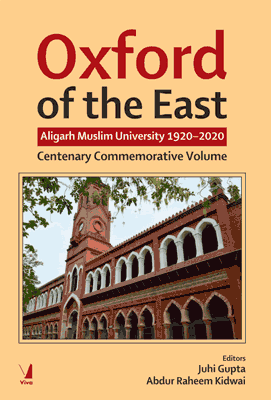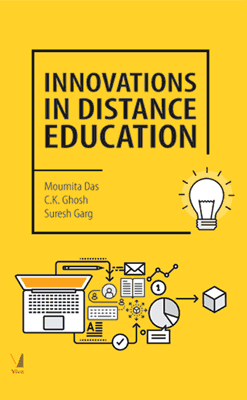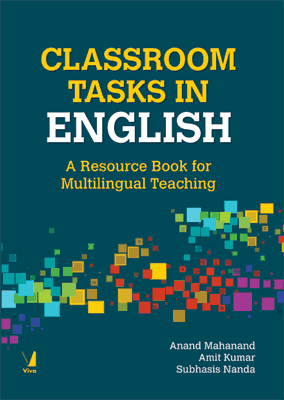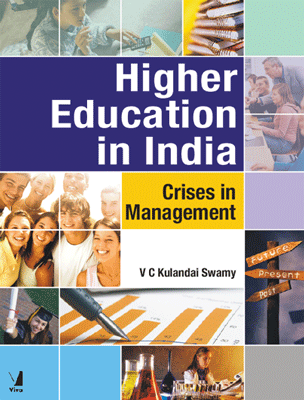
Higher Education in India
Higher Education in India
Crises in Management
₹625.50 ₹695.00 Save: ₹69.50 (10%)
Go to cartISBN: 9788130913834
Bind: Paperback
Year: 2010
Pages: 172
Size: 185 x 241 mm
Publisher: Viva Books Originals
Sales Territory: Worldwide
Description:
India has one of the largest systems of higher education in the world. Since independence it has enormously expanded in terms of quantity and diversity of fields of knowledge. However, it has remained relatively unchanged insofar as the structure, the system of management and even functional objectives are concerned.
As we enter the 21st century, higher education in India is still in a state of flux. A dissatisfied and highly critical public, an uninspired academia, shortages in funding, progressively consumer driven market, entry of private enterprise, globalization and a variety of other concerns demand that the long pending reforms be addressed and a meaningful restructuring of our higher education system be taken up without delay.
This volume brings together critical perspectives on and valuable insights into, several issues concerning tertiary education that have not been examined so closely and comprehensively. Prof. V.C. Kulandai Swamy addresses some of the issues ranging from the macro management of the system to micro management of institutions. He argues in his wide-ranging reflections over a period of almost two decades that our higher education system is in need of far-reaching changes.
The chapters in the volume look at key issues concerning:
• Systemic Changes; Curriculum Changes
• Autonomy and Decentralization
• Academic Leadership; the Vice-Chancellor; the Faculty
• Consumer Demand; Privatization
• Globalization; Assessment and Accreditation
• A Vision of the Future.
This book would be a valuable resource for education administrators, policy makers, teachers and students of higher education.
Target Audience:
Education administrator, policy makers, students and academics of education.
Contents:
Preface • Editors • Note • Abbreviations • Introduction: Setting the Scene • Management of Higher Education • Issues at System Level • Towards Decentralization • A System that Resists Change • Global Imperatives of Change • Accountability • Partners in Higher Education • Academic Leadership: The Desideratum • The Indian Vice-Chancellors • Women's Education • Assessment and Accreditation • The 21st Century: Challenges • My Legacy: Measure of My Merit References
About the Author:
Professor V.C. Kulandai Swamy, a doctorate in Water Resources from USA, has made outstanding contributions to Hydrology; an equation by him and a model based on it known as ?Kulandaiswamy Model • is quoted widely in Hydrologic literature. Moving to academic administration as Director of Technical Education, he occupied successively the chair of Vice Chancellor, Madurai Kamaraj University (1978-79); Vice Chancellor, Anna University, Chennai (1981-90), and Vice Chancellor, Indira Gandhi National Open University, New Delhi (1990-94). Currently he is chairman of the Tamil Virtual University, Chennai. Prof. Kulandai Swamy chose to be a teacher by discrete choice.
He has been a member/chairman of a number of academic bodies and expert committees at the national and international levels in Hydrology, Technical Education, Education and Distance Education. He has been the Vice-President, International Council for Distance Education (ICDE) for Asia; President, Association of Indian Universities (AIU) and President, Indian Society for Technical Education, New Delhi. He is the recipient of D.Sc.,/D.Litt., (h.c) from six universities.
He is a writer of standing in Tamil and was the honoured recipient of Sahitya Akademi Award, 1988. The Government of Tamil Nadu chose him for the Thiruvalluvar Award for 1998 in recognition of his contribution to Tamil literature.
The Commonwealth of Learning, Vancouver, Canada honoured him (1999) at Brunei by making him an Honorary Fellow of the Commonwealth of Learning • in recognition of his distinguished services to distance education and open learning in India and the Commonwealth countries. Acknowledging his outstanding contributions in the field of education for national development, Government of India has conferred the national honour of Padmashri in 1992, and Padma Bhushan in 2002.
About the Editors:
C.R. Pillai retired recently as Director (Planning and Development) of the Indira Gandhi National Open University (IGNOU). Earlier, he had worked for over 25 years in the Department of Education, Ministry of Human Resource Development, Government of India, New Delhi. His last assignment in the Ministry during the 1980s was heading the Higher Education Division. He was an involved insider who made major contributions to the shaping of 1986 Policy, the formulation of the programme of action and the preparation of the initial designs for new initiatives like establishment of State Councils of Higher Education. He was an active participant in the formulation of the project for establishing the IGNOU, and later in conceptualizing the Distance Education Council (DEC). He was associated with a large number of Expert Groups and Committees and had prepared several important documents on key areas of higher education like organization and management, policy and planning, funding and costing.
Prof. P.R. Ramanujam is presently the Director of the Staff Training and Research Institute (STRIDE) at the Indira Gandhi National Open University (IGNOU), New Delhi. He has substantially contributed to the pioneering efforts of IGNOU in all the operational areas crucial to the design, development and implementation of distance education programmes. He has served in many national and international organizations in different capacities to promote distance open learning, and has been the Programme Director for STRIDE's international programmes offered under two schemes: Rajiv Gandhi Fellowship Scheme and the IICBA (UNESCO) - STRIDE (IGNOU) scheme sponsored by the International Institute for Capacity Building in Africa, Addis Ababa. Prof. Ramanujam has authored 5 books, 2 research reports, over 60 research papers and conducted about 200 training programmes. He is the editor of the Indian Journal of Open Learning (IJOL).
